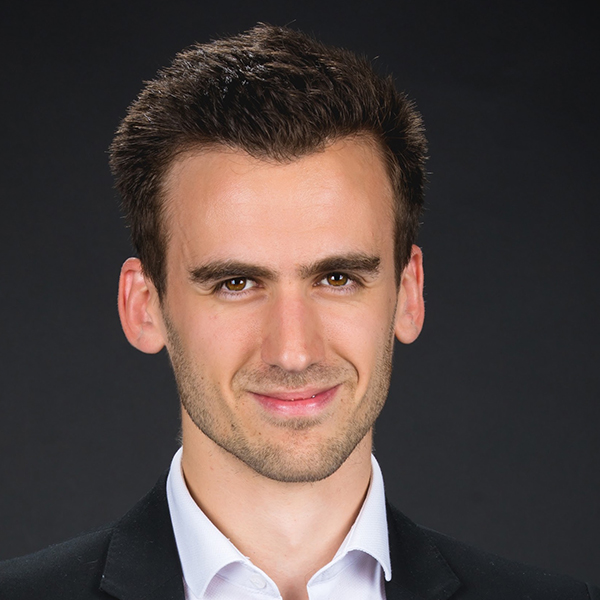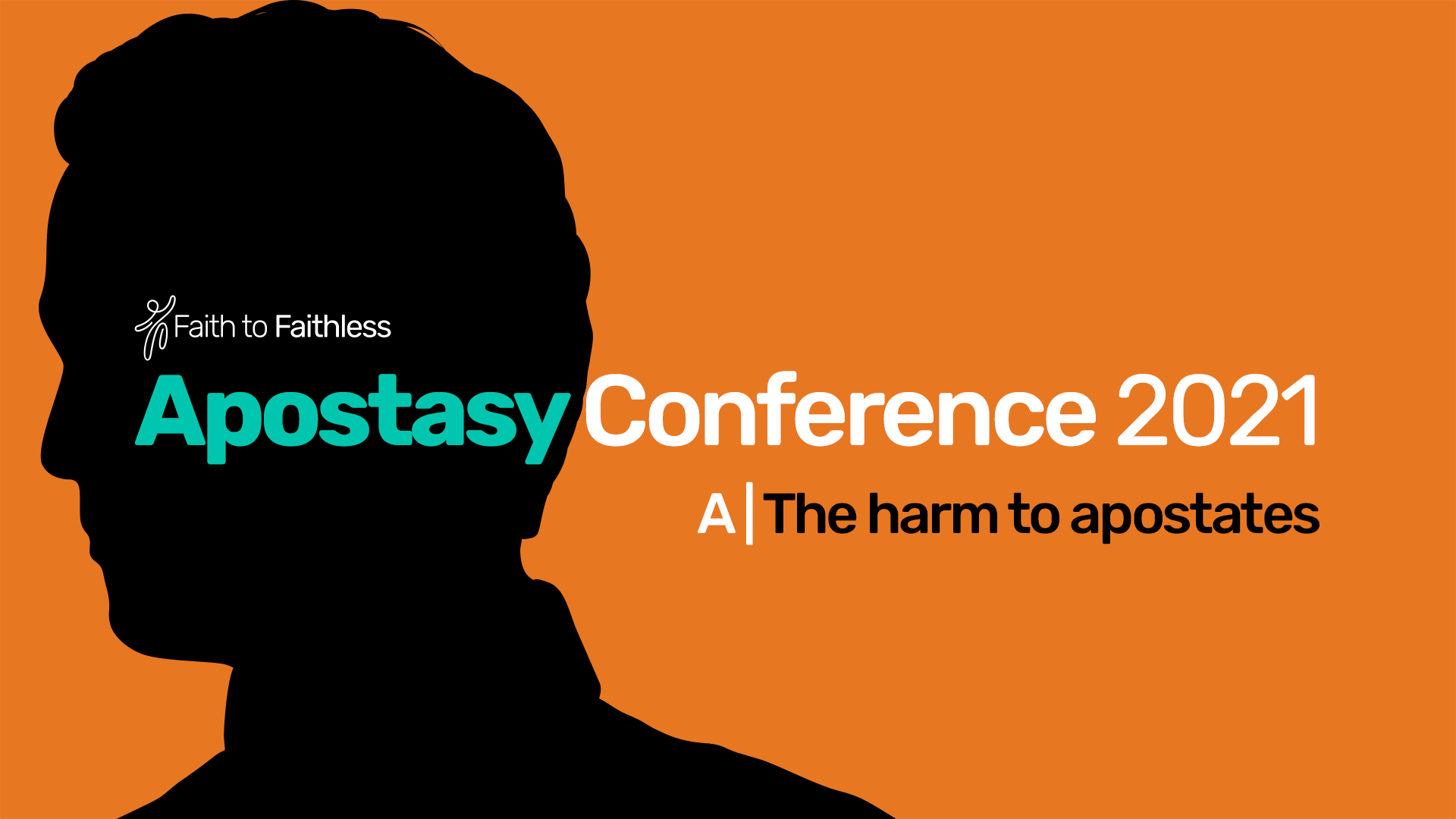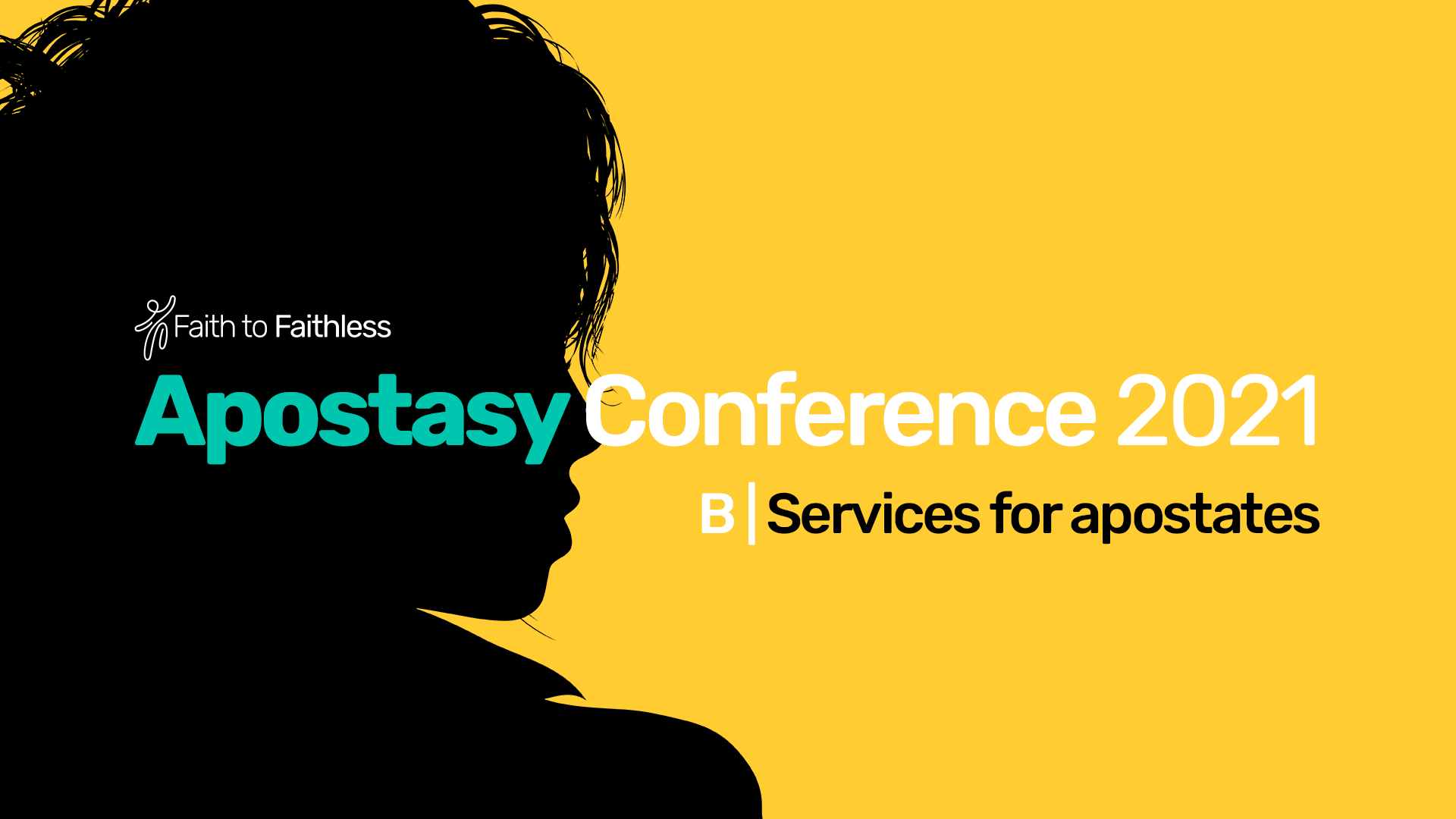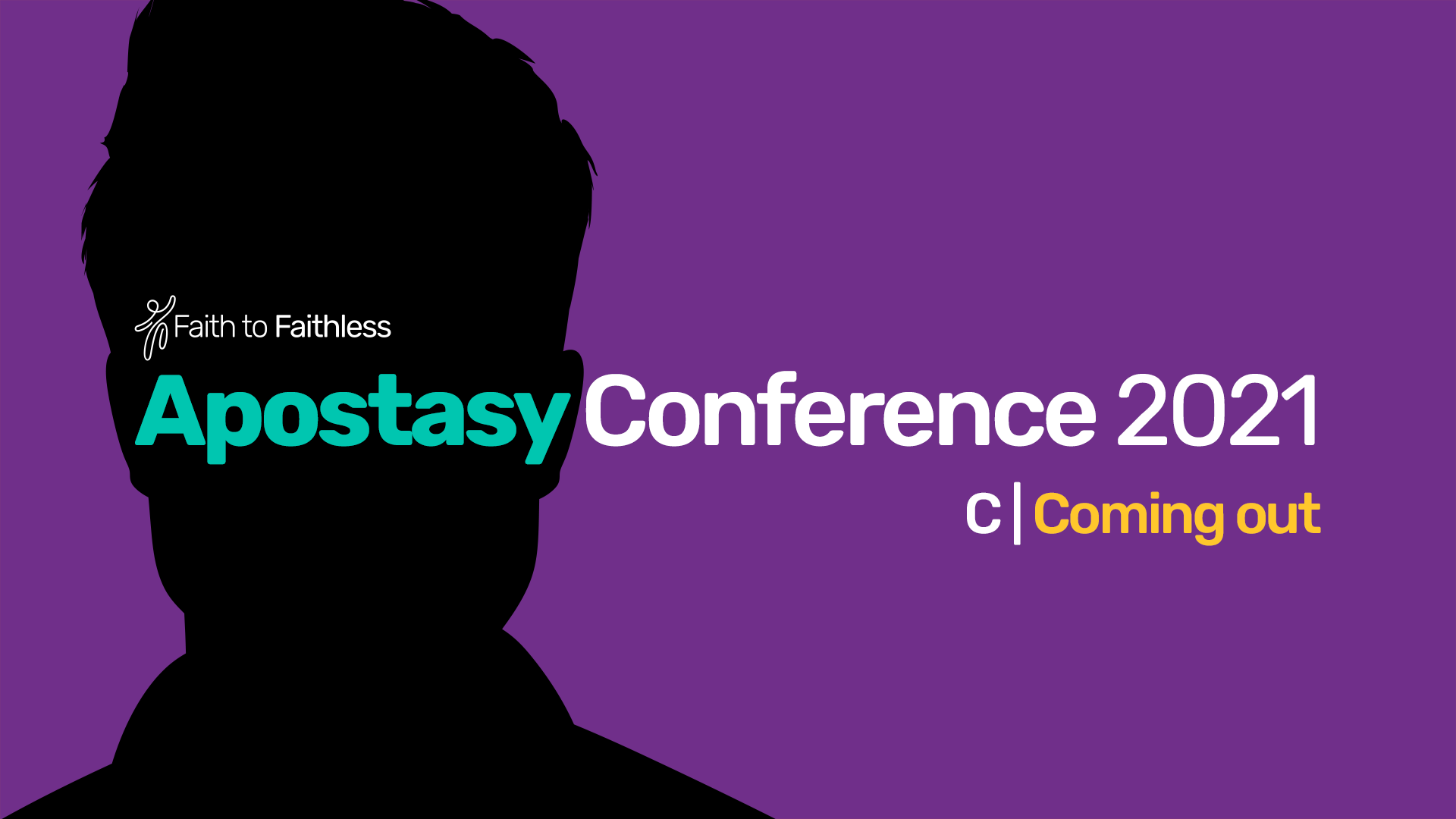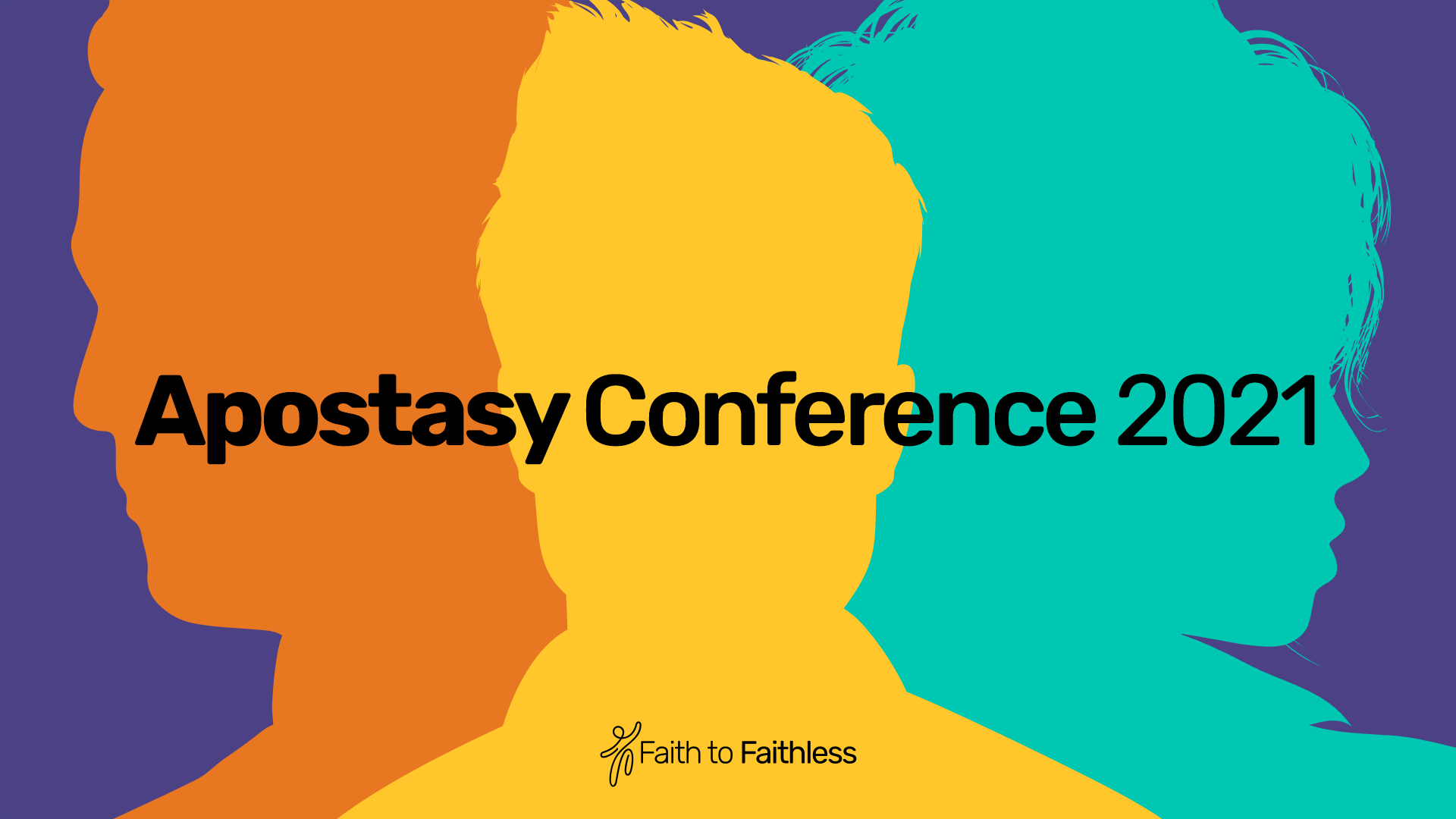
Apostasy Conference 2021
Wednesday 18 August, 13:00–18:00.
Roundtables take place 13, 14, 17 August.
In a first of its kind event, the Faith to Faithless Apostasy Conference 2021 brings together apostates, academics, service providers, and those with a professional interest in apostasy from right across the UK.
Those wishing to register can choose to attend the day conference on Wednesday 18 August (see bottom of page for speaker biographies), but can also choose to contribute to any or all of the three roundtable discussions taking place in the days prior. Registration is essential, but free.
Through the sharing of testimonials and lived experience, and the presentation of quantitative data, and discussion, attendees will leave the event with greater understanding of the impact of discrimination on apostates – and what can be done to ameliorate the dangers they too often face, and to help those who have left high-control religions to live happy and fulfilled lives.
Faith to Faithless is Humanists UK’s support programme for so-called ‘apostates’ and those who leave high-control religions. The service is led by apostates themselves, who have knowledge and experiences of apostate communities facing serious and systemic issues.
| Time | Topic | Facilitator |
|---|---|---|
| Wednesday 18 August | ||
| 13:00 | Welcome and introductions | Terri O’Sullivan Chair, Faith to Faithless |
| 13:10 | The rights of apostates and why we fight for them | Andrew Copson Chief Executive, Humanists UK |
| 13:20 | The barriers apostates face |
George Askwith Hari Parekh Dr Alejandro Sanchez Imtiaz Shams |
| 14:20 | Break | |
| 14:30 | The lived experience of apostates | Terri O’Sullivan Chair, Faith to Faithless Jimmy Bangash Emily Green |
| 15:30 | Break | |
| 15:40 | The intersection of apostasy and mental health | Dr Gillie Jenkinson Hope Valley Counselling Heather Ransom Clare Elcombe Webber |
| 16:40 | Break | |
| 16:50 | The future of human rights for apostates | Richy Thompson Director of Public Affairs and Policy |
| 17:50 | Close | Teddy Prout Director of Community Services |
The harm to apostates
Roundtable A
Friday 13 August, 11:30–13:00
This roundtable discussion will focus on the existing research into the harm and abuse apostates suffer. It will look at literature and studies that have been conducted in the past few years which focused on the apostate rather than apostasy.
Services for apostates
Roundtable B
Saturday 14 August, 11:00–12:30
This roundtable discussion will focus on systemic barriers to apostates accessing services and the issues apostates face once they have entered a service. This will inform the work of Faith to Faithless in supporting service providers to be more accessible and inclusive.
Coming out
Roundtable C
Tuesday 17 August, 11:00–12:30
This roundtable discussion will focus on better understanding the needs of apostates around the time they decide to come out. This will inform the work of Faith to Faithless and other apostate organisations in provide support at that critical time.
Conference Speakers
Dr Gillie Jenkinson
Dr Gillie Jenkinson is a UKCP accredited psychotherapist and a Registered member of BACP based in UK. She is experienced in delivering therapy on Zoom, face-to-face, as well as on the telephone. She served two internships at Wellspring Retreat Center, Ohio, a recovery centre for former members, and is a former member of a Bible-based cultic group. She has many years’ experience working with trauma, including survivors of religious, spiritual, cultic, and sexual abuse. Her approach to counselling apostates is described in Cult Recovery: A clinician’s guide to working with former members and families and entitled Relational Psychoeducational Intensive: Time Away for Post-Cult Counselling. She has delivered a ‘Certificate in Post Cult Counselling’ training to therapists in UK and plans to repeat this in 2022. She has co-authored a chapter for Royal College of Psychiatrists entitled Pathological Spirituality in a book entitled Spirituality and Psychiatry (second edition awaiting publication). Dr Jenkinson’s doctoral research dissertation is entitled: Freeing the authentic-self: Phases of Recovery and Growth from an Abusive Cult Experience.
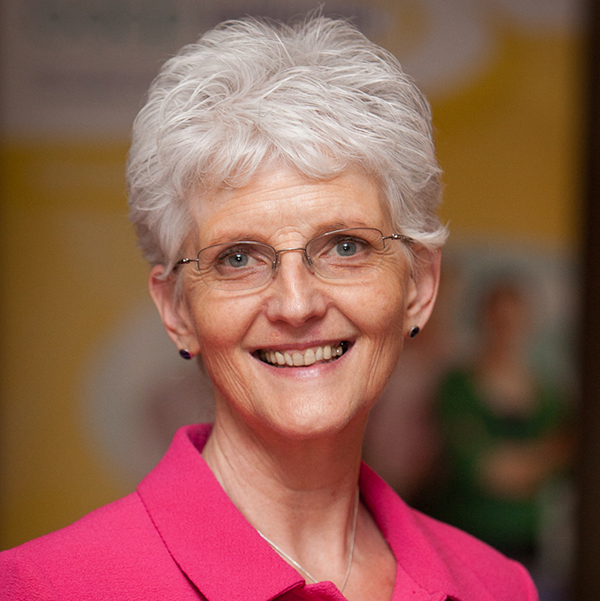
Hari Parekh
Hari Parekh is a Clincial Psychologist in Training at the University of Liverpool. He has a first-class honours degree in Psychology and Criminology from the University of Northampton and an MSc in Forensic and Criminological Psychology from the University of Nottingham. Parekh was formerly President of Humanist Students and is currently Chair of European Young Humanists, as part of Young Humanists International. Hari has published his MSc thesis on ‘Apostates as a Hidden Population of Abuse Victims’ – the first publication to highlight the worldwide abuse of apostates within religious households – which was published by the Journal of Interpersonal Violence.
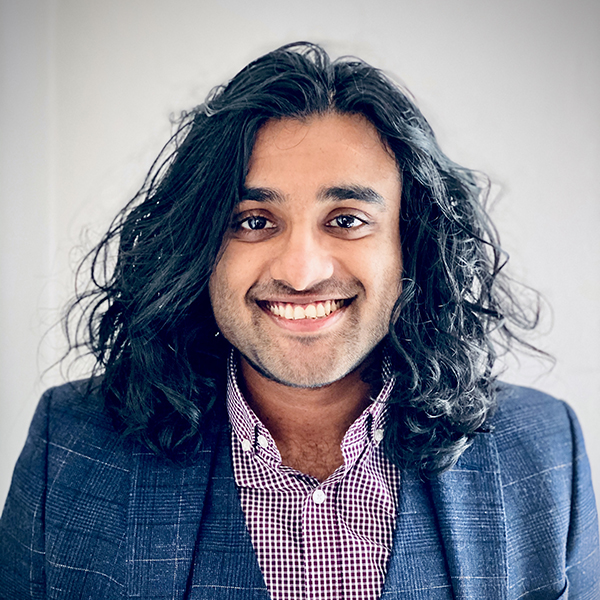
Heather Ransom
Heather Ransom, BSc Hons, FHEA, is a PhD researcher within the Psychology department at Edge Hill University. She is currently exploring the effects of religious ostracism when leaving the Jehovah’s Witness religion. Specifically, she is exploring the impact on identity, self-esteem, and belonging, as well as wider detriments to mental health and wellbeing. Heather is the author of two research papers written as part of her PhD studies, and has written for the Shiloh Project, an initiative that has grown out of Sheffield university. Ransom was born into the Jehovah’s Witnesses and remained a fully committed believer until 2014. In an effort to understand the coercive effects of the religion, she quit her job and went to university to undertake a degree in psychology. After graduation, and armed with an understanding of the theoretical underpinnings of ostracism, coercive control, and childhood conditioning, she started her PhD studies in 2018.
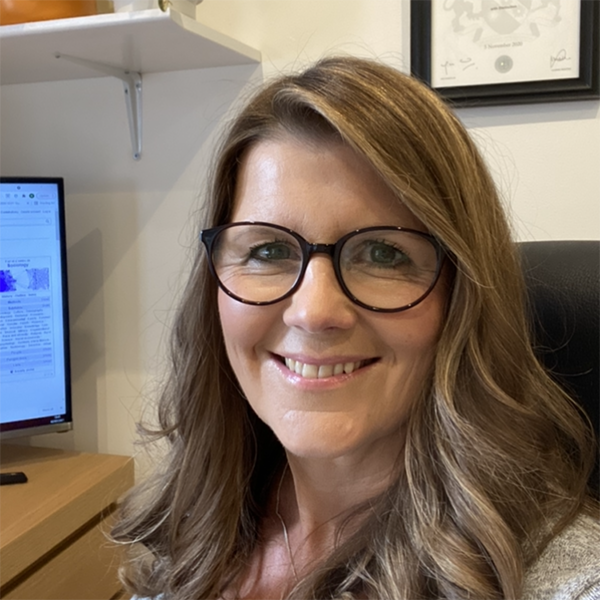
Alejandro Sanchez
Alejandro Sanchez is a retired medical doctor with a master’s degree in neuroscience. He joined Faith to Faithless with the hope of promoting the rights of apostates in the UK and is supporting research into systemic discrimination and barriers apostates face in accessing services.
